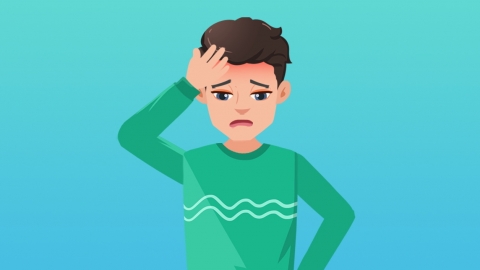What causes constant dizziness and vertigo?
Under normal circumstances, the main causes of persistent dizziness and vertigo include excessive fatigue, orthostatic hypotension, vestibular neuritis, Ménière’s disease, and cerebral arteriosclerosis. If discomfort symptoms occur, it is recommended to seek timely medical evaluation and treatment at a reputable hospital. Detailed analysis is as follows:
1. Excessive Fatigue
Long-term sleep deprivation and high-intensity work can prevent the body and brain from getting adequate rest, leading to nervous system dysfunction and relatively insufficient blood and oxygen supply to the brain, resulting in dizziness and vertigo. It is important to maintain a regular daily routine, avoid staying up late, ensure 7–8 hours of sleep per night, reduce prolonged periods of intense work, and engage in mild physical activities such as walking or yoga to relax both mind and body and improve symptoms.

2. Orthostatic Hypotension
When posture changes suddenly, delayed blood pressure regulation leads to transient cerebral hypoperfusion, causing dizziness and vertigo, often accompanied by temporary vision darkening. When getting up, one should move slowly—sit upright for a moment before standing. In daily life, increase fluid intake appropriately and avoid prolonged standing.
3. Vestibular Neuritis
Viral infection affecting the vestibular nerve disrupts vestibular function and balance perception, causing dizziness and vertigo, frequently accompanied by nausea and vomiting. Antiviral medications such as acyclovir tablets or valacyclovir capsules should be taken under medical guidance, along with betahistine mesylate tablets to improve inner ear circulation and relieve dizziness. Adequate rest and avoidance of strenuous activity are essential during treatment.
4. Ménière’s Disease
Endolymphatic hydrops (fluid accumulation) in the inner ear labyrinth compresses surrounding tissues, impairing vestibular and auditory functions, leading to episodes of dizziness and vertigo, often accompanied by tinnitus and hearing loss. Under medical supervision, hydrochlorothiazide tablets and spironolactone tablets may be prescribed to reduce inner ear fluid buildup, while difenidol tablets help alleviate dizziness. In severe cases, endolymphatic sac decompression surgery may be performed to reduce inner ear pressure and improve symptoms.
5. Cerebral Arteriosclerosis
Chronic conditions such as hypertension and hyperlipidemia cause thickening of cerebral vessel walls and narrowing of the lumen, reducing cerebral blood flow and causing brain tissue hypoxia, which results in dizziness and vertigo, possibly accompanied by memory decline. Under medical guidance, aspirin enteric-coated tablets may be used to prevent thrombosis, simvastatin tablets to regulate blood lipids, and nifedipine controlled-release tablets to control blood pressure. Additionally, dietary adjustments—including reduced intake of high-fat and high-cholesterol foods—are crucial to slow the progression of arteriosclerosis.
In daily life, it's important to maintain a regular schedule and avoid overexertion; rise slowly when changing positions to prevent orthostatic hypotension; follow a light diet and manage blood pressure and lipid levels; and undergo regular cerebrovascular examinations to detect and address vascular abnormalities early, thereby maintaining brain health.




